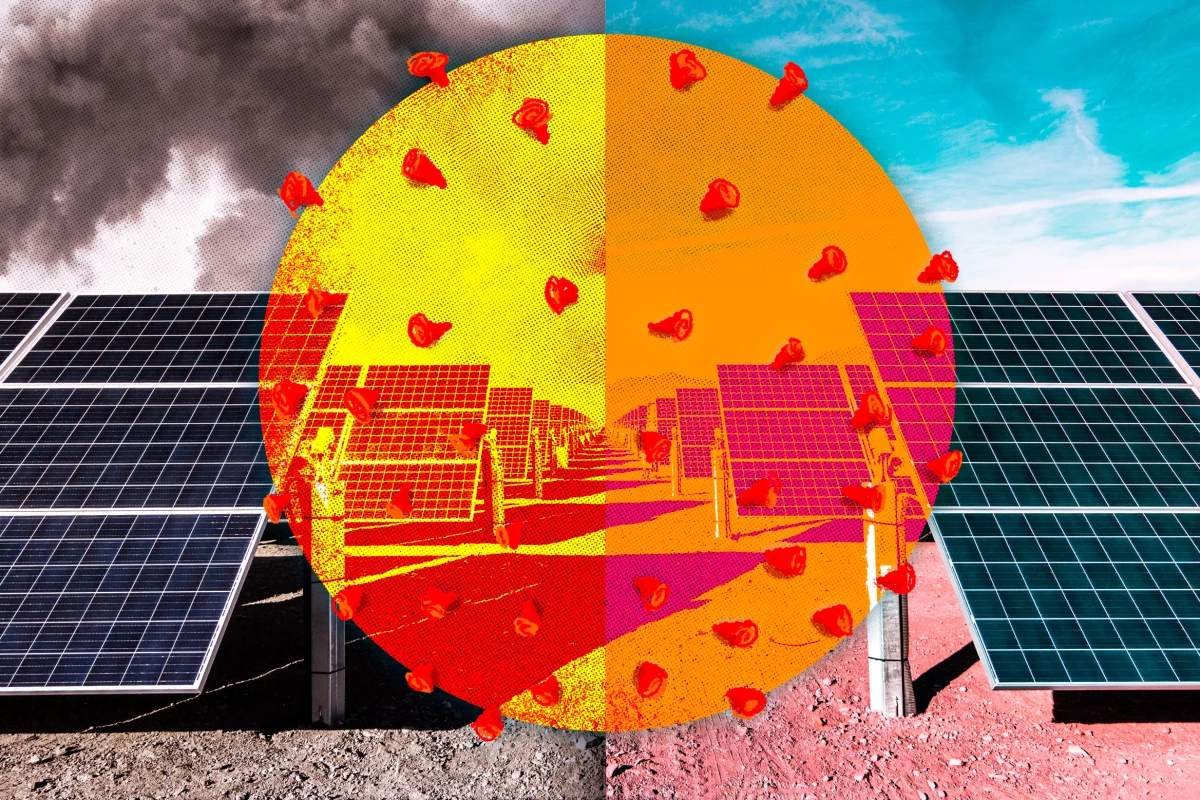The ongoing COVID-19 pandemic has changed the world in many ways, some obvious and some less so. Now, scientists have quantified an effect that lies a few links down the chain, finding that solar panels in certain cities have seen a boost in output, due to a reduction in air pollution.
Much of the world has essentially ground to a halt this year, as many countries issue stay-at-home orders to try to curb the spread of the virus. With fewer cars on the road and planes in the sky, and many factories and industry on pause, we’ve seen air pollution drop sharply over COVID-19 epicenters like China and Italy.
But the line of dominoes doesn’t end there. Recent reports have suggested that this could affect the performance of solar panels in some areas. And now a research team led by MIT has set out to quantify those effects.
The researchers focused on Delhi, India, which is one of the smoggiest cities in the world. They found that after the country implemented mandatory lockdown on March 24, pollution levels dropped by half. As a result of the clearer skies, the total output of solar panels in the country increased by 8.3 percent in late March, and by 5.9 percent in April.
The team says that these deviations are three to four times higher than would be expected from regular fluctuations in such a short time period. And while the numbers themselves may not sound like very much, the researchers point out that it could translate to a fivefold increase of the profit margin of these systems.
“This is the first real quantitative evaluation where you almost have a switch that you can turn on and off for air pollution, and you can see the effect,” says Ian Marius Peters, an author of the study. “You have an opportunity to baseline these models with and without air pollution.”
According to the team, the finding could suggest that solar energy could form a positive feedback loop. The more panels that are installed, the cleaner the air becomes and the more efficient existing solar panels become.
Of course, that’s a pretty idealized version of events. In practice, tangible effects may only really be noticed in places with high air pollution in the first place, like Delhi. The researchers say they investigated earlier reports about similar solar power boosts in the UK and Germany, but the data suggests that the biggest contributing factor was merely a run of nice weather.
“The air pollution levels in Germany and Great Britain are generally so low that most PV installations are not significantly affected by them,” says Peters.
With no end to the pandemic in sight, it’s likely that we’ll continue to find interesting side effects in a range of areas.
The research was published in the journal Joule.
Source: MIT




